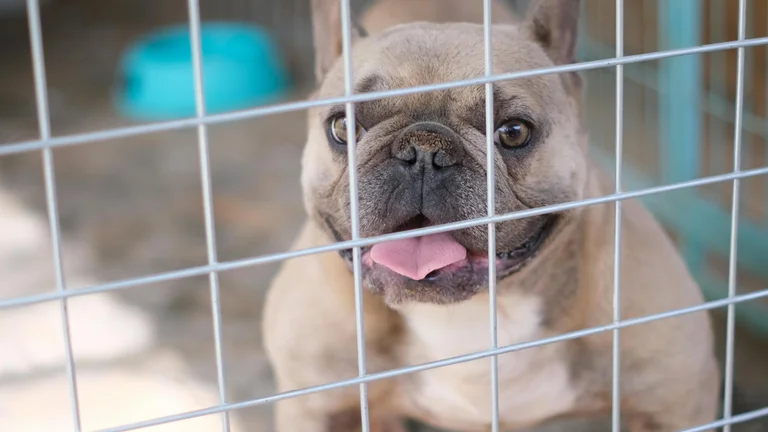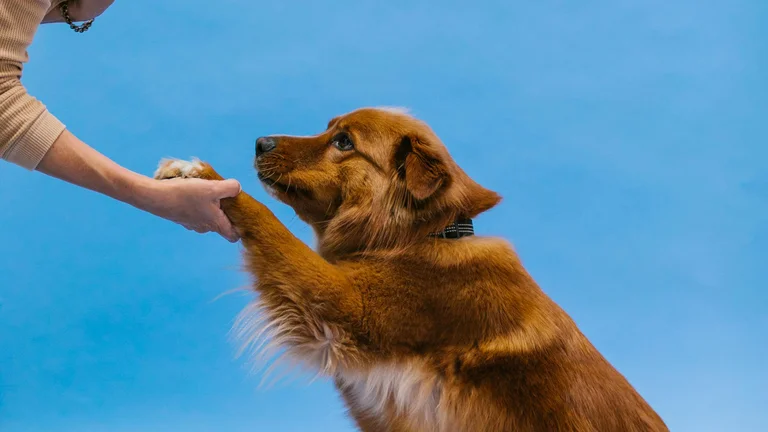Understanding the Landscape of Purebred Dog Adoption in the USA

Adopting a purebred dog in the United States is a unique process that combines the responsibilities of responsible pet ownership and the specific considerations required by purebred dog characteristics. Purebred dogs are those bred to conform to established breed standards, often recognized by organizations like the American Kennel Club (AKC). While many people associate purebred dogs with purchasing from breeders, there is a growing movement and increasing opportunities to adopt purebred dogs through rescue organizations, shelters, and breed-specific rescues. This approach emphasizes adoption over buying, contributing to reducing euthanasia rates and giving purebred dogs a second chance at a loving home.
The adoption process for purebred dogs may differ from typical animal shelter adoptions because of breed-specific requirements, health considerations, and potential demand. Thus, understanding the different adoption pathways, evaluating the suitability of different breeds for your lifestyle, and preparing for the responsibilities involved are crucial initial steps. This guide explores all essential aspects of purebred dog adoption in the USA, providing in-depth information, practical examples, and structured guidance to equip potential adopters.
The popularity of purebred dogs in America remains strong due to traits like predictable size, temperament, and appearance. However, the availability of purebred dogs for adoption is often limited compared to mixed breeds. Various breed-specific rescues specialize in particular breeds, locating and rehabilitating displaced purebreds to find adoptive families. Rescue groups generally have extensive knowledge about their breed, including health issues and temperament, which adds a valuable resource for prospective adopters. Alongside local animal shelters and municipal pounds, these entities contribute to the network of opportunities to find a purebred companion.
Where to Find Purebred Dogs for Adoption in the USA
The primary locations to find purebred dogs available for adoption in the United States include:
- Breed-specific rescues
- Animal shelters and municipal pounds
- General rescue organizations with purebred dog programs
- Online adoption platforms and databases
- Purebred dog organizations and clubs
Breed-specific rescue organizations deserve special mention. These nonprofits focus exclusively on rescuing and rehoming dogs of one particular breed or related breeds. Examples include the Golden Retriever Rescue, German Shepherd Rescue, or Bulldog Rescue groups. These organizations often have foster networks that provide temporary homes while extensively screening potential adopters to find matches compatible with the breed's specific needs.
Local animal shelters may also occasionally have purebred dogs available, although these encounters are less frequent since purebred dogs might often be claimed quickly or transferred to breed rescues. Municipal shelters usually provide medical care, vaccinations, and behavioral evaluations before adoption. They may also collaborate with breed-specific rescues when purebred dogs enter their care.
Online portals such as Petfinder, Adopt-a-Pet, and the AKC Marketplace designate various purebred dogs open for adoption. These platforms consolidate listings from multiple rescues and shelters nationwide, increasing the chances of finding a specific breed in a preferred geographic location.
Understanding Breed Characteristics and Suitability
Before initiating the adoption process, gaining detailed knowledge about the breed of interest is essential. Each purebred breed comes with defining attributes, including temperament, exercise needs, grooming requirements, health predispositions, and size. Understanding these elements helps ensure the chosen dog fits the adopter’s household, lifestyle, and expectations.
For instance, working breeds like Border Collies or Siberian Huskies require extensive exercise and mental stimulation, which may be unsuitable for someone with a sedentary lifestyle or limited time. Conversely, companion breeds such as Cavalier King Charles Spaniels or French Bulldogs may better suit apartment living and moderate activity.
Health considerations are also paramount. Certain breeds are susceptible to genetic conditions, necessitating regular veterinary care and possibly higher expenses. For example, Bulldogs often face respiratory challenges, while large breeds like Great Danes have concerns related to joint health and lifespan. Prospective adopters should research breed-specific health issues and inquire about medical history during the adoption process.
Temperament varies significantly among breeds. For families with children, breeds known for patience and gentleness, like Labrador Retrievers, tend to be more appropriate. Individuals with allergies may prefer hypoallergenic breeds such as Poodles or Bichon Frises. These considerations affect household dynamics, so careful matching based on breed traits reduces the risk of future rehoming.
The Process of Adopting a Purebred Dog
Adoption processes vary across organizations but generally include several key steps designed to ensure suitability, responsible ownership, and transparency:
- Application: Prospective adopters complete a detailed application form outlining their lifestyle, experience with dogs, and home environment.
- Screening/Interview: Rescue managers or shelter staff conduct interviews or home visits to assess whether the adopter’s lifestyle aligns with the dog’s needs.
- Meet and Greet: Opportunities to meet the dog in person or through virtual means to evaluate compatibility and personality.
- Reference Checks: Contacting references provided by the adopter, such as veterinarians, landlords, or personal contacts.
- Adoption Agreement: A legal document outlining responsibilities, return policies, and care expectations.
- Adoption Fee: Covers medical care, vaccinations, spaying/neutering, and administrative costs.
- Post-Adoption Follow-Up: Some organizations maintain contact to assist with transition issues and provide ongoing support.
This structured approach ensures that the adoption places the dog into a secure, loving environment and minimizes returns or abandonment. Some breed rescues may include additional assessments or stipulations relative to the breed’s care, such as fenced yards, experience with high-energy dogs, or restrictions on homes with certain other pets.
Detailed Steps for Finding and Adopting a Purebred Dog
Embarking on the adoption journey requires preparation, patience, and attentiveness to detail. The following guide illustrates a structured, step-by-step approach:
- Research Breeds Thoroughly: Use breed profiles, breed club resources, and veterinary literature to evaluate which breed aligns with your circumstances effectively.
- Identify Potential Adoption Sources: Search for breed-specific rescues through the AKC’s Rescue Network database, local shelters, and major online pet adoption portals. Narrow your focus geographically if necessary to ensure feasibility.
- Contact Rescue Organizations: Reach out via email or phone to inquire about current availability and adoption procedures. This may involve subscribing to newsletters or following social media channels to receive updates.
- Complete Applications Carefully: Tailor your application to emphasize your readiness, stability, and commitment to the breed’s specific needs.
- Prepare for Home Inspections: Many organizations conduct visits to ensure your home provides a safe and suitable environment. Prepare to showcase secure fencing, cleanliness, and absence of hazards.
- Arrange Meet-and-Greet Sessions: If possible, meet the dog in foster homes or shelter facilities to observe the dog’s behavior and your reaction.
- Finalize Adoption Documentation: Review, sign, and return paperwork per the organization’s guidelines. Pay any associated adoption fees promptly.
- Plan for Transition: Prepare your home with necessary supplies, establish a routine, and acquire knowledge about training and ongoing care.
Patience is crucial as some rescues have waiting lists, especially for highly sought-after purebreds. Potential adopters should maintain communication and remain open to adapting timelines or exploring alternative breeds.
Health, Vaccination, and Medical Care Considerations
One of the significant advantages of adopting from reputable rescues or shelters is that basic veterinary care is typically provided before adoption. This care includes vaccinations against core diseases like parvovirus, distemper, and rabies, deworming treatments, and often spaying or neutering to control population growth.
Prospective adopters should request full medical histories, including any chronic health conditions, past surgeries, or medication needs. Purebred dogs frequently carry genetic predispositions to certain ailments. For example, Dalmatians are prone to urinary stones, while Cavalier King Charles Spaniels may suffer from mitral valve disease. Understanding and preparing for these conditions helps manage future expenses and care strategies effectively.
Following adoption, scheduling a comprehensive veterinary check-up for a baseline health assessment is advisable. Establishing a relationship with a vet knowledgeable about the breed can facilitate targeted preventative care and guidance. Adopters should expect regular wellness exams, vaccinations, dental care, and nutritional advice tailored to their dog’s breed, size, and life stage.
Many rescues provide microchipping as part of their adoption package, enhancing safety through permanent identification. Additionally, adopters should inquire about behavioral assessments related to medical conditions that may influence handling and care, such as seizures or allergies.
Financial and Time Commitments for Purebred Dog Adoption
Adopting a purebred dog involves significant financial and time investments. On average, initial adoption fees for purebreds can range from $150 to $500 or more, depending on breed, age, medical care, and rescue organization policies. These fees often reflect spaying/neutering, vaccinations, microchipping, and other veterinary expenses already incurred.
Ongoing costs include food, grooming, routine veterinary care, dental hygiene, preventive medications (heartworm, flea, tick, parasites), training classes, and potential breed-specific health treatments. Certain breeds require specialized diets or grooming routines demanding more frequent professional services. For example, long-haired breeds such as Afghan Hounds require regular detangling and trimming, while brachycephalic breeds might need extra veterinary attention.
Time commitment involves daily exercise aligned with breed energy levels, socialization, training, and attention to behavioral health. High-energy breeds may require upwards of two hours daily of vigorous activity and mental challenges to remain content. Others that are more sedentary or companion-oriented still benefit from routine walks and interaction.
Many first-time adopters underestimate these commitments leading to challenges in the adjustment period. Proper planning, education through books, trainers, or local clubs, and realistic self-assessment improve the likelihood of a successful, lifelong partnership.
Legal and Ethical Considerations in Purebred Dog Adoption
Adoption of purebred dogs in the USA involves legal obligations and ethical responsibilities. Adopters enter into contracts holding them accountable for the dog’s welfare and, in many cases, agree to return the dog to the rescue if unable to keep it. These agreements protect both the dog and the organization from neglect or resale that violates adoption principles.
Breed rescues especially emphasize ethical standards, often requiring adopters to commit to no breeding clauses to prevent irresponsible propagation of the breed. This standard helps reduce overpopulation and maintains breed integrity within responsible channels.
Adopters should ensure compliance with local ordinances related to licensing, leash laws, and breed-specific legislation, where applicable. While breed bans are rare, some municipalities restrict ownership of certain breeds due to perception or previous incidents. Awareness of such conditions prevents legal complications.
Ethically, adopters must recognize the importance of lifelong commitment regardless of challenges. Purebred dogs that enter rescue may have histories of abandonment, trauma, or health issues requiring patience and special care. Providing a stable home environment contributes meaningfully to animal welfare efforts nationwide.
Comprehensive Comparison of Adoption vs. Buying from Breeders
Prospective owners frequently face the choice of adopting a purebred dog or purchasing one from a breeder. Analyzing the advantages and disadvantages of each path can inform more conscious decisions.
| Aspect | Adoption | Buying from Breeders |
|---|---|---|
| Cost | Typically lower adoption fees ($150-$500); includes veterinary care | Significantly higher, ranging from $1,000 to $5,000 depending on breed and bloodline |
| Animal Welfare | Provides homes to dogs in need, reduces shelter populations | Supports breeders; risk of unethical or puppy mill breeders |
| Health | Rescues screen for health; mixed unknown history possible | Registered breeders offer pedigree and health testing |
| Availability | Limited and variable supply; may require waiting lists | Immediate purchase if breeder has litters |
| Behavioral Background | Often includes evaluations or known histories | Puppies with known lineage but unknown adult behavior |
| Ethical Impact | Positive, reduces overpopulation and euthanasia | Varies based on breeder practices |
The decision should weigh personal priorities, ethical viewpoints, readiness to provide care, and financial capability. Adopting purebred dogs offers a chance to save one animal while still obtaining breed-specific traits, though it may require flexibility and patience.
Common Challenges and How to Overcome Them
Adopting a purebred dog can pose challenges including breed scarcity, adjusting to unknown histories, and managing breed-specific health issues. Being prepared to address these concerns increases adoption success rates.
- Scarcity: Popular breeds often have longer waitlists. Expanding your search radius, networking with multiple rescues, and considering related breeds can help.
- Health Care Costs: Establish emergency funds, explore pet insurance tailored for purebreds, and maintain regular veterinary check-ups.
- Behavioral Adjustment: Engage professional trainers or behaviorists experienced with the breed to facilitate smooth transitions.
- Household Integration: Supervise initial interactions with other pets and children carefully, providing gradual introductions.
Patience and consistent commitment often surmount these hurdles, turning adoption into a fulfilling experience that benefits both dog and owner.
Resources and Organizations Supporting Purebred Dog Adoptions
Numerous organizations provide support, listings, and expertise for adopting purebred dogs throughout the USA. Engaging these resources can provide valuable guidance and increase chances of successful adoption.
- American Kennel Club (AKC) Rescue Network: Coordinates breed-specific rescues nationwide, offering listings and adoption procedures.
- Petfinder: A large online database aggregating adoptable purebred dogs from rescues and shelters.
- Rescue Me: Handles breed-specific searches and connects adopters to specialized rescues.
- Local Humane Societies and ASPCA: Often hold adoptions and, occasionally, purebred dogs come in through these shelters.
- National Breed Clubs: Many have rescue committees specifically assisting displaced dogs of their breed.
Utilizing these entities provides critical information, timely updates on available dogs, and trustworthy adoption procedures to protect adopters and dogs alike.
FAQ - Discover How to Adopt Purebred Dogs in USA
What is the difference between adopting and buying a purebred dog?
Adopting a purebred dog means rescuing or taking ownership of a dog that is typically relinquished, found in shelters, or saved by breed-specific rescues, often at a lower cost and with veterinary care already completed. Buying from a breeder usually involves purchasing a puppy from planned litters, often at a premium price and with pedigree guarantees.
Are purebred dogs available for adoption in most shelters?
Purebred dogs are less commonly found in general shelters compared to mixed breeds because they are often claimed quickly or taken in by breed-specific rescues. However, checking local shelters and breed rescue databases increases the chance of finding purebred dogs for adoption.
Do breed rescues provide medical care before adoption?
Yes, reputable breed rescues and shelters provide necessary veterinary care such as vaccinations, spaying/neutering, microchipping, and health screenings prior to adoption to ensure the dog is healthy and ready for a new home.
How can I find a breed-specific rescue organization?
You can search breed-specific rescues through the American Kennel Club Rescue Network, online platforms like Petfinder, or national breed club websites, which often list affiliated breed rescues and their adoption procedures.
Are there adoption fees for purebred dogs?
Yes, adoption fees typically range between $150 and $500. These fees usually cover vaccinations, spaying/neutering, microchipping, and veterinary care, supporting the rescue’s ongoing operations.
What should I consider before adopting a purebred dog?
Consider the breed’s temperament, exercise needs, grooming requirements, health predispositions, and how these align with your lifestyle, living situation, and ability to provide long-term commitment.
Can I adopt a puppy through breed rescues?
While purebred puppies can occasionally be found in rescues, most are adult or adolescent dogs. Breed rescues focus on dogs in need, and the availability of puppies varies widely.
What legal agreements are involved in purebred dog adoptions?
Adopters usually sign contracts that include care responsibilities, no-breeding clauses, and requirements to return the dog to the rescue if unable to keep it, ensuring ethical ownership and dog welfare.
How long does the adoption process take?
The adoption process can range from a few days to several weeks depending on application reviews, screenings, availability of the dog, and any waiting lists.
Are there breed restrictions or laws I should know about?
Some local municipalities have breed-specific legislation or restrictions. It is essential to check local laws regarding dog ownership to avoid complications with breeds that may be regulated or banned.
Adopting purebred dogs in the USA involves connecting with breed-specific rescues, shelters, and online platforms, understanding breed characteristics, and completing a thorough adoption process that includes medical checks and behavioral screening. This ensures responsible, informed ownership and supports animal welfare by giving purebred dogs a second chance.
Adopting a purebred dog in the USA requires understanding breed traits, identifying trustworthy rescue organizations, and committing to the responsibilities of breed-specific care. By navigating the established procedures carefully, prospective owners can find purebred companions while supporting humane efforts to provide dogs with secure, loving homes across the country.






